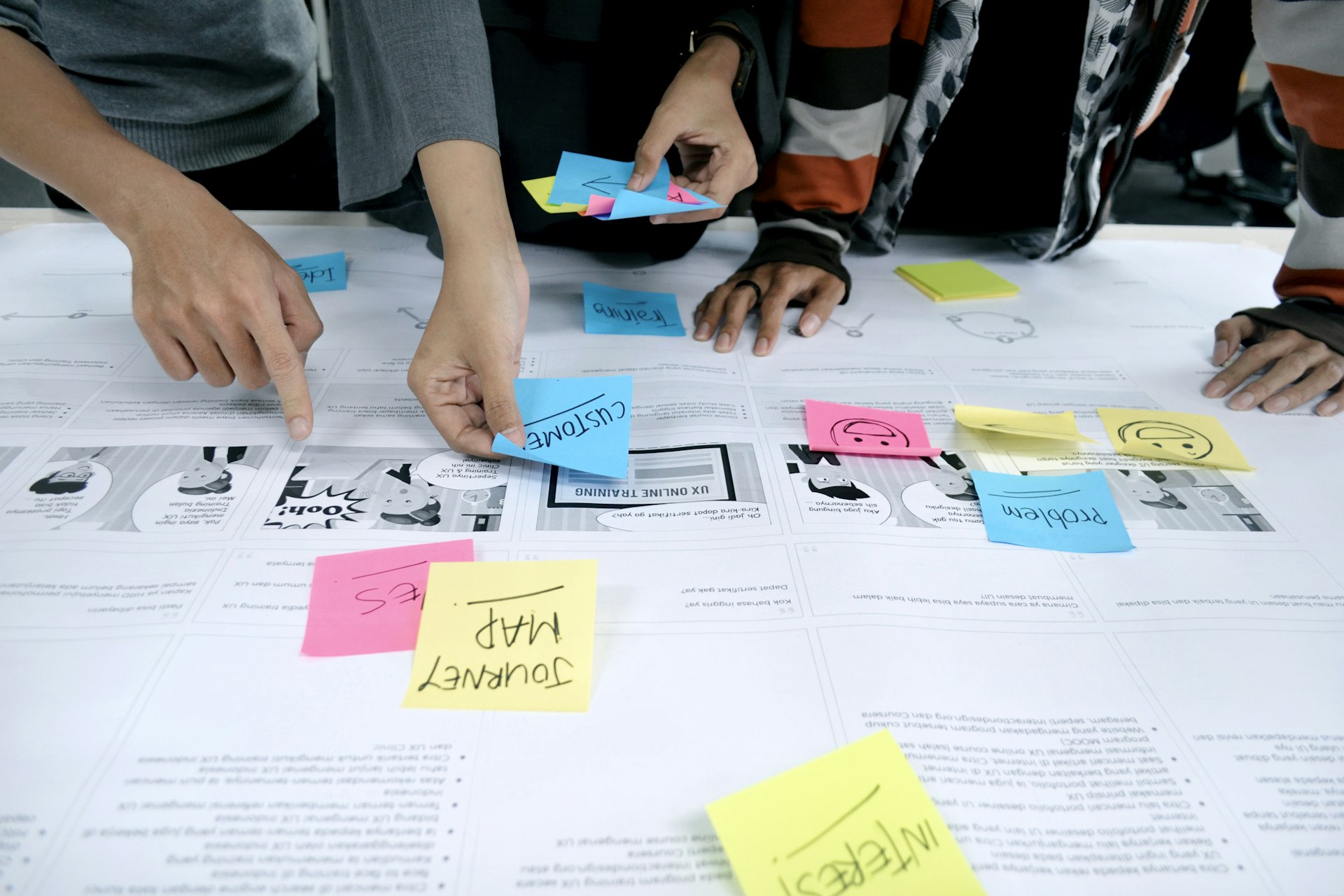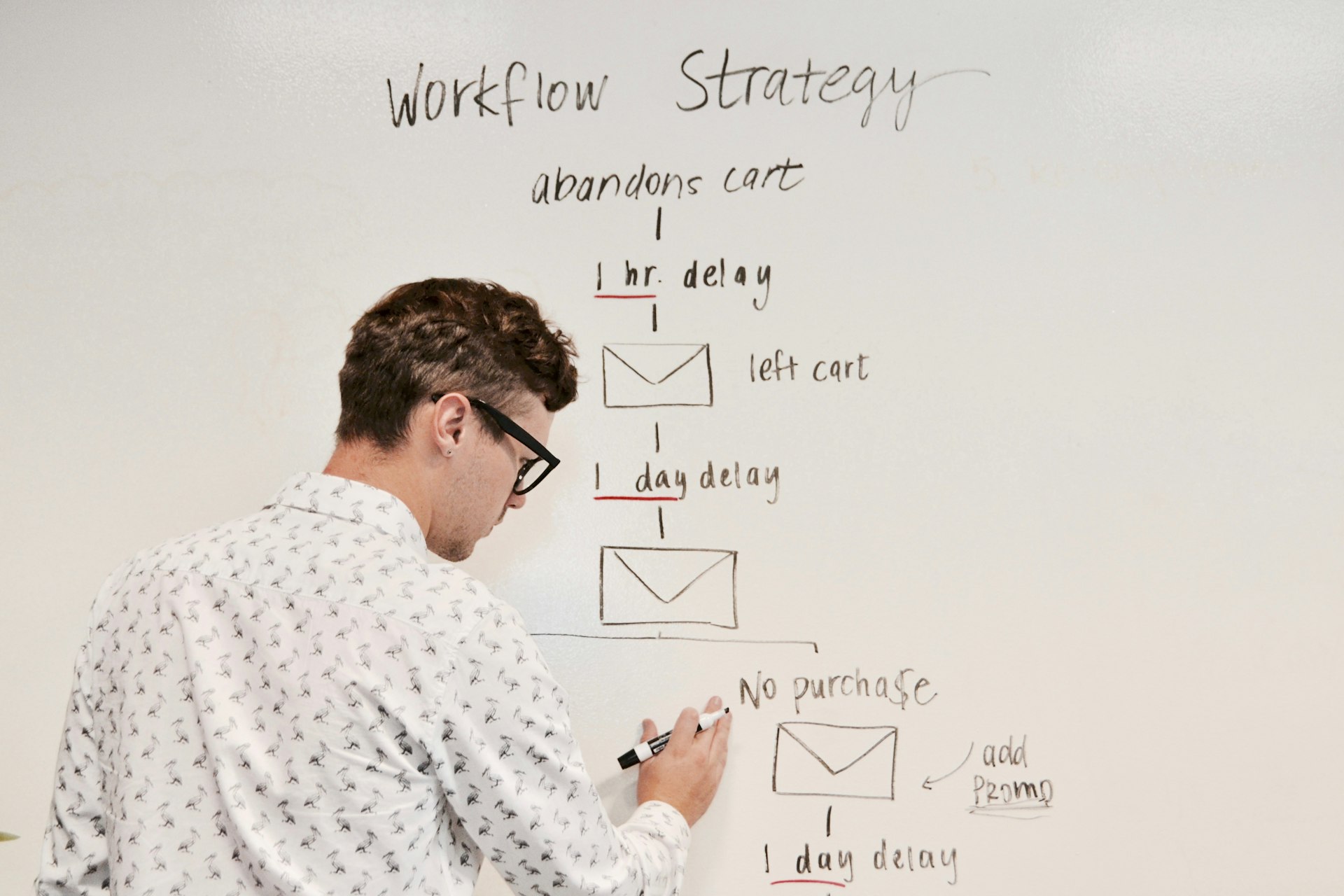How Artificial Intelligence Is Transforming Digital Marketing: Trends, Strategies, and Actionable Opportunities

Photo by Andres Siimon on Unsplash
Introduction: AI’s Revolution in Digital Marketing
Artificial intelligence (AI) is fundamentally reshaping the digital marketing landscape, delivering more efficient, personalized, and data-driven approaches to customer engagement. As businesses compete for consumer attention, AI enables marketers to analyze vast datasets, automate repetitive tasks, and predict user behaviors, driving measurable improvements in campaign performance and customer satisfaction [1] . This article explores the impact of AI across all facets of digital marketing and provides actionable guidance for accessing the latest tools, strategies, and opportunities.
Advanced Data Analytics and Customer Insights
One of the most significant impacts of AI in digital marketing is its ability to process and analyze enormous volumes of data. Traditional methods often struggle with the scale and complexity of online data, but AI-powered tools, including machine learning (ML) and natural language processing (NLP), can extract actionable customer insights within minutes [2] . Marketers now use AI to:
- Segment audiences based on purchase behavior, browsing patterns, and real-time interactions for highly targeted campaigns [1] .
- Predict future purchasing decisions and trends, enabling businesses to allocate resources more strategically [3] .
Implementation Steps:
- Assess your existing data sources, including CRM platforms, website analytics, and social media channels.
- Adopt AI-powered analytics platforms such as IBM Watson or Google Analytics with AI integrations for deeper insights. Ensure these platforms are verified and accessible via their official websites.
- Train staff on interpreting AI-generated reports to inform campaign decisions.
Challenges and Solutions: Data privacy regulations and technical complexity can pose challenges. To mitigate risks, partner with vendors that maintain rigorous compliance standards and provide robust onboarding resources [4] .
Hyper-Personalization at Scale
AI’s predictive power allows businesses to move beyond basic demographic targeting, crafting individualized experiences for each customer. Recommendation engines, such as those used by Netflix or Amazon, analyze browsing and purchase histories to suggest relevant products and content [4] . E-commerce brands leverage AI for:
- Dynamic product recommendations tailored to user behavior.
- Personalized email marketing and targeted advertising that reflect individual interests.
For example, a clothing retailer can use AI to segment customers into groups based on past purchases and engagement, delivering curated offers to increase conversion rates [1] .
Practical Steps:
- Collect user engagement data via your website and email platforms.
- Integrate an AI-powered personalization tool, such as Salesforce Einstein or Adobe Sensei, available from their verified official sites.
- Continuously test and refine personalization algorithms for optimal results.
Alternative Approaches: Smaller businesses may use AI-powered plugins for popular CMS platforms like Shopify, WordPress, or HubSpot, which offer verified integrations through their official app stores.
Marketing Automation and Productivity Gains
AI streamlines routine marketing activities, boosting productivity and freeing up human resources for strategic work. AI-driven marketing automation covers:
- Automated content creation, email scheduling, and social media publishing [1] .
- Programmatic advertising, where AI determines optimal ad placement, timing, and audience targeting.
- Chatbots and virtual assistants for instant customer inquiry resolution and lead qualification.
For instance, AI-powered chatbots operate 24/7, delivering personalized responses and collecting valuable lead data. This not only improves customer experience but also increases conversion opportunities [4] .
Step-by-Step Guidance:

Photo by Rubidium Beach on Unsplash
- Identify repetitive tasks in your current workflow that can be automated.
- Research verified automation platforms like HubSpot, Mailchimp, or Drift, and implement features tailored to your business needs.
- Monitor results and adjust automation rules for higher efficiency.
Potential Challenges: Over-automation may reduce the personal touch. Balance automation with human oversight and regularly review customer feedback for quality assurance.
AI in SEO, Trend Forecasting, and Content Production
AI is redefining digital strategy by enhancing search engine optimization (SEO), accelerating content production, and forecasting market trends [5] . Key impacts include:
- Automated SEO workflows that can increase organic traffic by up to 20x.
- AI-driven content generation, reducing production time by up to 50% and scaling output by 3x.
- Trend analysis tools that identify emerging topics and consumer interests.
Implementation Steps:
- Evaluate AI-powered SEO tools such as SEMrush, Moz, or Ahrefs for verified features and integrations.
- Utilize AI content generators like Jasper or Copy.ai, ensuring they are sourced from official vendor sites.
- Set up trend monitoring dashboards to stay ahead of market shifts and consumer preferences.
Risks and Mitigation: AI-generated content should be reviewed for accuracy and originality to avoid penalties and maintain brand credibility. Combine automation with editorial standards for best results.
Accessing AI Tools and Resources in Digital Marketing
To harness AI’s full potential, marketers should:
- Begin by auditing current marketing processes to identify areas for AI integration.
- Research verified AI platforms through official company websites, app marketplaces, or trusted industry directories.
- Leverage free resources and training materials provided by major vendors like Google, IBM, Salesforce, and Adobe, accessible via their official learning portals.
- Consult industry professionals, attend webinars, or join online communities focused on AI-driven marketing strategies.
If direct links cannot be verified, use specific search terms such as “AI digital marketing tools,” “AI marketing automation platforms,” or “AI personalization solutions” to locate reputable providers through search engines or trusted business directories.
Key Takeaways and Next Steps
AI is empowering marketers to deliver hyper-personalized experiences, automate complex workflows, and extract deep insights from vast data sources. Businesses that embrace AI-driven digital marketing strategies can expect measurable improvements in targeting, engagement, and ROI. To capitalize on these opportunities:
- Stay updated on emerging AI technologies and best practices.
- Invest in staff training and professional development.
- Monitor results and iterate strategies for continuous improvement.
For further guidance, utilize official industry resources, consult with established marketing agencies specializing in AI, and participate in accredited training programs to build expertise in this rapidly evolving field.
References
- [1] Missouri State University (2024). How AI is transforming marketing.
- [2] Adaptive US (2024). How AI is revolutionizing digital marketing analysis.
- [3] Sanctuary Marketing Group (2024). How AI is changing the digital marketing world.
- [4] Harvard Division of Continuing Education (2024). AI will shape the future of marketing.
- [5] DesignRush (2025). AI in digital marketing: Strategies & examples for 2025.
MORE FROM todayhiring.us













